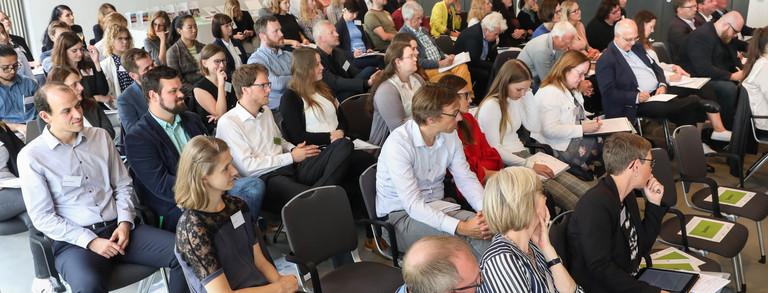IFS Lecture Series
Program (German)
| Date | Title | Speaker |
|---|---|---|
| 12. April | Schulen in herausfordernden Lagen – Theoretische Ansätze und Forschungsstand zu extern und intern bedingten Problemkonstellationen | Prof. Dr. Heinz Günter Holtappels (IFS, TU Dortmund) |
| 19. April | School Improvement by Lesson Observations and Feedback | Dr. Jan F. Deinum (University of Groningen/Netherlands) |
| 26. April | Schulentwicklung als Fassadenveranstaltung? Zur Verarbeitung von Ergebnissen der Schulinspektion an Schulen mit Entwicklungsbedarf | Prof. Dr. Kathrin Dedering (Universität Erfurt) |
| 03. May | Improving Schools in Disadvantaged Areas Through Collaborative Interventions and Structures’ Work | Prof. Dr. Daniel Muijs (Head of Research, Ofsted/GB) |
| 17. May | Improvement Strategies for Schools in Difficult Contexts | Prof. Dr. Chris Chapman (University of Glasgow/GB) |
| 07. June | Schulentwicklung von Schulen in schwieriger Lage in Berlin – zentrale Ergebnisse der BONUS-Studie | Prof. Dr. Kai Maaz & Dr. Susanne Böse (DIPF, Berlin) |
| 14. June | Design-based Improvement Programs for Schools in Challenging Circumstances | Prof. Dr. Rick Mintrop (University of Berkeley/USA) |
| 21. June | Evidenz- und netzwerkbasierte Schulentwicklung für Schulen in herausfordernden Lagen – Schulentwicklungsansatz und Forschungsbefunde | Dr. Annika Hillebrand, Tanja Webs & Prof. Dr. H. Günter Holtappels (IFS, TU Dortmund) |
| 28. June | School Turnaround in Hamburger Schulen – eine kritische Bilanz | Dr. Joachim Herrmann (Landesinstitut für Lehrerbildung und Schulentwicklung, Hamburg) |
| 12. July | Schulentwicklung in besonders belasteten Schulen – Theorie und Empirie zu Wirksamkeit, Passung und Kontingenz im Kontext von Schulleitung, Schulentwicklung und Schulqualität | Prof. Dr. Stephan Huber (PH Zug/Schweiz) |
| 19. July | Defizitorientierung an Schulen in sozial benachteiligten Lagen und Potenziale datenorientierter Schul- und Unterrichtsentwicklung | Dr. Nina Bremm & Dr. E. Dominique Klein (Universität Duisburg-Essen) |






